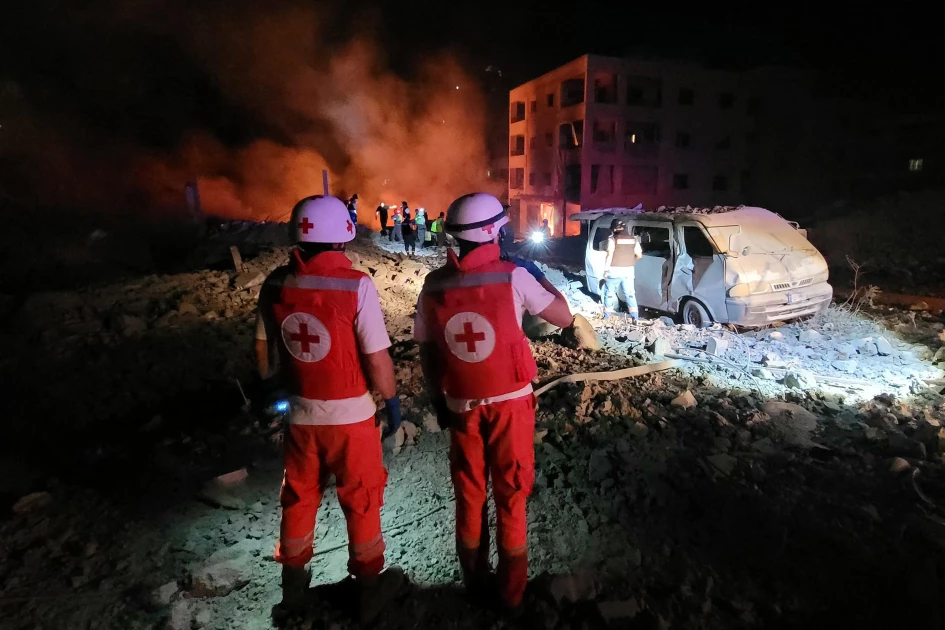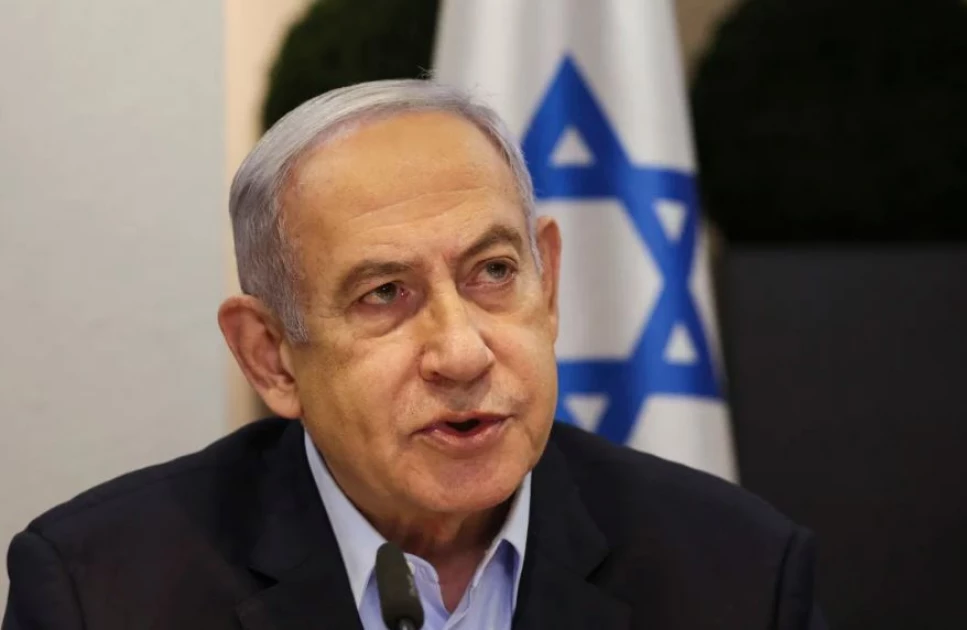Israeli PM Netanyahu firmly dismissed the prospect of a ceasefire in Lebanon that would allow Hezbollah to remain near Israel’s northern border, especially as the militant group threatened to escalate its attacks. His remarks came amid increasing pressure from the United States regarding Israel’s actions in Lebanon and Gaza, including criticism of recent bombings in Beirut and calls for greater humanitarian aid to Palestinian territories.
During a conversation with French President Emmanuel Macron, PM Netanyahu stated he opposed a unilateral ceasefire, arguing that it would not alter the security landscape in Lebanon but instead revert it to previous tensions, as noted in a statement from his office.
Netanyahu and the Israeli military have stressed the necessity of establishing a buffer zone along Israel’s border with Lebanon, free from Hezbollah fighters.
ALSO READ: Rwanda starts first ever clinical trial for Marburg treatment: WHO
“PM Netanyahu clarified that Israel would not agree to any arrangement that does not provide this (a buffer zone) and which does not stop Hezbollah from rearming and regrouping,” the statement said.
In a defiant televised address, Hezbollah’s deputy leader Naim Qassem declared that a ceasefire is the only solution, while also warning of an escalation in missile strikes targeting Israel.
“Since the Israeli enemy targeted all of Lebanon, we have the right from a defensive position to target any place” in Israel, he said.
Early Wednesday, Israel’s military reported that approximately 50 projectiles were launched from Lebanon toward its northern regions, though there were no reports of casualties.
Iran-backed Hezbollah announced that it launched “a large salvo of missiles” at the town of Safed.
In response, Israel’s military carried out airstrikes on various locations in southern and eastern Lebanon on Tuesday, targeting areas in the Bekaa Valley, which included a hospital in Baalbek that was rendered inoperable, according to Lebanon’s official National News Agency. The military also reported capturing three Hezbollah fighters in southern Lebanon.
ALSO READ: PM Benjamin Netanyahu Rejects Unilateral Ceasefire in Lebanon
Lebanon’s health ministry reported that nine individuals were killed in strikes on the southern region on Tuesday evening, along with five others in the east, including three children.
When questioned about the Israeli airstrikes in Lebanon that struck residential buildings in central Beirut on October 10, the US State Department expressed clear criticism.
“We have made clear that we are opposed to the campaign the way we’ve seen it conducted over the past weeks” in Beirut, State Department spokesman Matthew Miller told reporters.
In a letter sent to the Israeli government on Sunday, Secretary of State Antony Blinken and Defense Secretary Lloyd Austin cautioned that the United States might withhold weapons deliveries if more humanitarian aid is not provided to Palestinians in Gaza.
The letter conveyed to the Israeli government the necessity for changes to ensure that the level of assistance reaching Gaza increases from its current, critically low levels, as noted by Miller.
Despite the urgent need for food, medical supplies, and shelter in hunger-stricken Gaza, a spokesman for UNICEF stated on Tuesday that aid is facing the strictest restrictions since the onset of Israel’s offensive in October of last year.
“We see now what is probably the worst restrictions we’ve seen on humanitarian aid, ever,” spokesman James Elder said in Geneva, adding that there were “several days in the last week (where) no commercial trucks whatsoever were allowed to come in”.
For over a week, Israeli forces have conducted extensive air and ground operations targeting northern Gaza and the Jabalia area, amid claims that Hamas militants were regrouping in those locations.
“The whole area has been reduced to ashes,” said Rana Abdel Majid, 38, from the Al-Faluja area of northern Gaza.
Majid reported that entire blocks had been reduced to rubble by “indiscriminate, merciless bombing.”
At a school-turned-shelter struck by an Israeli attack in the central Nuseirat camp, Fatima al-Azab expressed, “There is no safety anywhere” in Gaza.
“They are all children, sleeping in the covers, all burned and cut up,” she said.
Israel initiated a military campaign in Gaza following a Hamas attack on October 7, 2023, which resulted in the deaths of 1,206 people, primarily civilians, according to an AFP tally of official Israeli figures, including hostages who were killed in captivity.
The Israeli campaign has since claimed the lives of 42,344 individuals, most of whom are civilians, based on data from the health ministry in the Hamas-run territory, which the UN considers reliable.
Israel intensified its air campaign against Hezbollah in Lebanon starting September 23, followed by a ground offensive a week later aimed at pushing the group back from its northern border.
Over the past year, Hezbollah has launched thousands of projectiles into Israel in support of Hamas, resulting in the displacement of tens of thousands of Israelis.
Since Israel escalated its bombing campaign last month, at least 1,356 people have been killed in Lebanon, according to an AFP tally of figures from the Lebanese health ministry, though the actual toll is likely higher.
The conflict in Lebanon, already burdened by years of economic crisis, has displaced at least 690,000 people, as reported by the International Organization for Migration.
Israel is also considering its response to Iran’s decision to fire around 200 missiles at the country on October 1.
PM Netanyahu’s office stated that Israel would determine its response, not its main ally, the United States.
“We listen to the opinions of the United States, but we will make our final decisions based on our national interest,” it said Tuesday.
The Iranian missile barrage was in retaliation for an Israeli strike in Beirut that killed Hezbollah leader Hassan Nasrallah, along with another strike that claimed the life of Iranian general Abbas Nilforoushan on September 27.
US President Joe Biden, whose administration is Israel’s primary arms supplier, has cautioned Israel against targeting Iran’s nuclear or oil facilities.
According to a Washington Post report on Monday, citing unnamed US officials, Netanyahu assured the White House that Israel was considering only military sites for potential strikes.


